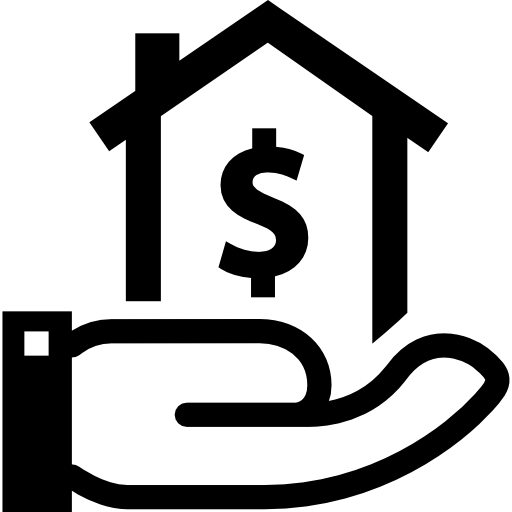So, you’ve found yourself falling behind on your mortgage payments, and the worry of losing your home is keeping you up at night. It’s a tough spot to be in but you’re not alone.
One option you might be considering is selling your house. But can you really do that when you’re behind on payments? Let’s break it down.
Is It Possible to Sell Your House When You're Behind on Payments?
The short answer is yes, it’s possible. Despite being behind on payments, selling your house is still an option.
In fact, according to Statista, around 12% of homes sold in the US in 2021 were sold by owners facing financial distress, including missed mortgage payments.
What are Your Options

When you’re behind on mortgage payments, you need to understand the legal and financial implications of selling your house. Missing payments can have serious consequences, including foreclosure and damage to your credit score.
However, selling your house can help you avoid foreclosure and minimize the impact on your credit. You can explore these top three options:
Short Sale
A short sale involves selling the home for less than the remaining balance on the mortgage.
To pursue a short sale, homeowners must receive approval from their lender, as it requires forgiving the difference between the sale price and the outstanding mortgage balance. This can prevent damaging your credit and financial future.
Mortgage Forbearance
Mortgage forbearance allows you to temporarily pause or reduce your mortgage payments due to financial hardship. This choice is especially important when times are tough, like when you lose your job or face a medical emergency.
By considering a forbearance agreement with your lender, you can buy time to stabilize your financial situation and explore other options.
Loan Modification
Loan modification involves renegotiating the terms of your existing mortgage loan to make it more manageable. This could include lowering the interest rate, extending the loan term, or even reducing the principal balance.
Loan modifications aim to provide long-term affordability for homeowners struggling with mortgage payments. By making the monthly payments more affordable, homeowners can avoid defaulting on their loans and potentially keep their homes.
Consider Alternatives
Before diving into selling your house, it’s worth exploring alternative solutions. For instance, you might consider selling your house back to the bank or renting out your property.
Deed in Lieu of Foreclosure
A deed in lieu of foreclosure is a voluntary agreement between the homeowner and the lender where the homeowner transfers ownership of the property to the lender in exchange for the cancellation of the remaining mortgage debt.
Selling your house back to the bank is a good option to consider, but keep in mind that they aren’t always open to accepting a deed in lieu of foreclosure.
You might still be responsible for any deficiency balance if your property’s value is insufficient to cover the outstanding mortgage debt.
Rent Out Your Property
A good alternative would be to rent out the property to generate rental income that can be used to cover mortgage payments.
Renting out the property allows you to continue building equity in the home while potentially waiting for market conditions to improve before selling. However, becoming a landlord comes with its own set of responsibilities, including property management, tenant selection, and maintenance.
You should carefully consider the rental market in your area, rental income potential, and your ability to manage rental property before pursuing this option.
Impact on Your Credit
One major concern for homeowners considering selling their house when behind on payments is the impact on their credit score. It’s true that missing mortgage payments can negatively affect your credit, but selling your house can help mitigate this impact.
Selling a house that you still owe a mortgage on can have various impacts on your credit. Here’s a detailed explanation:
Payment History
One of the most significant factors impacting your credit score is your payment history. If you’ve been consistently making on-time mortgage payments, selling the house is less likely to have a significant negative impact on your credit. If you’ve missed payments or been consistently late, it could lower your credit score.
Sale Price vs. Remaining Mortgage Balance
The sale proceeds are typically used to pay off the remaining balance on your mortgage. If the sale price covers the entire remaining balance, it can have a neutral or positive impact on your credit as it demonstrates responsible debt repayment.
However, if the sale price is lower than the remaining balance (as in a short sale), it could result in a deficiency balance which can negatively impact your credit.
Type of Sale
The type of sale can also impact your credit. For example, a short sale, where the lender agrees to accept less than the full amount owed on the mortgage, will have a negative impact on credit compared to a traditional sale where the mortgage is fully paid off.
You can avoid the stress of the sale negatively impacting your credit score by considering a cash buyer.
Credit Reporting
The status of your mortgage account after the sale is reported to credit bureaus, and this information can impact your credit score.
If the account is reported as “paid in full” or “settled,” it may have a less severe impact on your credit compared to if the account is reported as “settled for less than the full amount” in the case of a short sale.
Future Creditworthiness
Selling a house with a mortgage does not necessarily ruin your credit forever. With responsible financial management and timely payments on other debts, you can rebuild your credit over time.
Additionally, lenders may consider the circumstances of the sale, such as economic hardship or extenuating circumstances, when evaluating your creditworthiness for future loans.
The Importance of Fair Market Value

Fair market value (FMV) in real estate is the determined price that a property will sell for in an open mark. It’s the price that a buyer is willing to pay, and a seller is willing to accept.
Now, why does knowing the fair market value matter when you’re selling a house with mortgage payments hanging over your head?
Setting the Right Price
Pricing your house correctly is key to attracting buyers and selling it in a reasonable amount of time.
If you price it too high, you might scare away potential buyers. If you price it too low, you could end up leaving money on the table.
Knowing the fair market value helps you set a competitive price that reflects the true worth of your home.
Negotiating with Confidence
When you understand the fair market value of your house, you’ll know what your property is worth and won’t be swayed by lowball offers or pressured into accepting less than it’s worth.
This can be especially important if you’re trying to sell quickly to avoid falling further behind on mortgage payments.
Attracting Serious Buyers
Serious buyers do their homework. They research the market and compare prices before making an offer. If your house is priced in line with its fair market value, you’re more likely to attract serious buyers who are willing to pay a fair price for your property.
So, how do you determine the fair market value of your house? There are a few different approaches you can take:
Comparable Market Analysis (CMA)
A real estate agent can provide a CMA that analyzes recent sales of similar properties in your area to estimate your house’s value.
Professional Appraisal
Hiring a licensed appraiser to assess your property can provide a more precise valuation based on factors like location, size, condition, and recent sales data.
Online Valuation Tools
There are also various online tools and resources available that provide estimates of a property’s value based on publicly available data. While these can be useful for getting a rough idea, they’re not always accurate and should be taken with a grain of salt.
Pros and Cons of Selling Your House
On one hand, selling your house can help you avoid foreclosure and minimize damage to your credit. But on the other hand, you may lose equity in your home, and the process can be emotionally challenging. Consider the following pros and cons before making a decision:
1. Selling Subject-To the Existing Mortgage
- Faster closing process without traditional bank delays.
- Cheaper closing costs without bank fees or appraisal expenses.
- Flexible down payment options without strict bank requirements.
- Alternative for buyers who can't secure traditional financing.
- Higher interest rates compared to traditional bank loans.
- Need for seller approval, as the seller may not want to act as the lender.
- Risk of due-on-sale clause triggering immediate payment of the mortgage balance.
- Possibility of balloon payments due after a few years, risking loss of payments made.
2. Owner Financing
- Ability to sell “as-is” without costly repairs.
- Potential for better returns on the money lent compared to other investments.
- Option to sell the promissory note for a lump-sum payment.
- Retaining title and property rights in case of buyer default.
- Risk of buyer defaulting on the mortgage.
- Risk of property damage or devaluation by the buyer.
- Delay in receiving the full amount owed after the sale.
- Need for due diligence on potential buyers and servicing the loan.
3. Selling to Cash Buyers or Real Estate Investors
- Fast sale process, often within days.
- Immediate cash payment without waiting for traditional financing.
- Coverage of closing costs and processing fees by the buyer.
- Purchase of the property in as-is condition, saving on repair costs.
- Potential for selling at a discount to market value.
- Limited negotiation power on the sale price.
- Reliance on buyer's terms and conditions for the sale.
- Need to ensure the legitimacy and credibility of the buyer.
Resources You Might Need

When you’re struggling to sell your house because you’re behind on mortgage payments, it’s important to think about your money situation as a whole.
Selling the house might seem like the easiest fix, but it’s worth taking a moment to think about your finances in general. The Federal Reserve provides resources for homeowners facing financial difficulties.
Consider making a plan to handle all your money issues, not just the mortgage. By looking at the big picture, you might find better ways to deal with your situation and avoid more money problems in the future.
Debt consolidation
This involves combining multiple debts into a single loan with a lower interest rate. By consolidating debts, you can streamline your payments and potentially reduce your overall monthly obligations.
Credit counseling
Consider working with a certified credit counselor to develop a personalized plan for managing debts and improving financial literacy. Credit counseling services can provide valuable guidance on budgeting, debt repayment strategies, and negotiating with creditors.
Frequently Asked Questions
What does it mean to be “above water” or “underwater” in mortgage terms?
These terms refer to the value of the home compared to the outstanding mortgage balance, which influences the decision to sell.
What are the risks of selling a house with overdue mortgage payments?
The risks of selling a house with overdue mortgage payments include potential damage to credit and financial loss.
Are there any legal implications for selling a house with overdue mortgage payments?
Depending on the terms of the mortgage agreement and state laws, the lender may have the right to pursue legal action to recover the outstanding debt, potentially resulting in legal proceedings or foreclosure.
Where to From Here?
Selling your house when you’re behind on mortgage payments is possible, but it requires careful consideration of all the options available to you and the potential consequences.
Remember, you’re not alone, and there are resources available to help you get through this challenging time. If you are looking to sell your home quickly, we can help. Contact us now for a quick cash sale.




